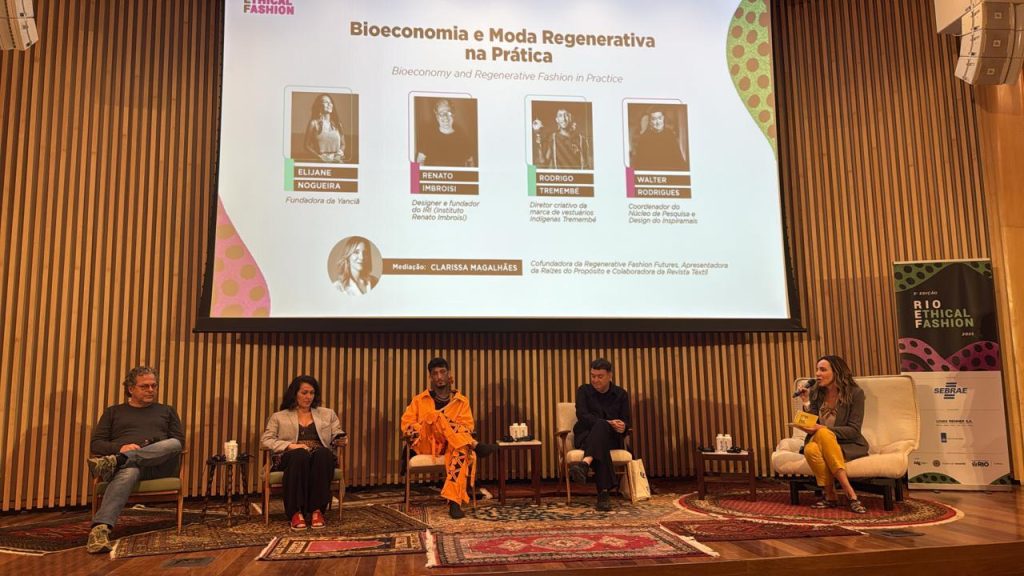Walter Rodrigues Discusses the Amazon Biome and Fashion at Rio Ethical Fashion
Walter Rodrigues, a fashion designer and coordinator of the Design and Research Center at the Brazilian Association of Companies of Components for Leather, Footwear and Artifacts (Assintecal), was one of the speakers at the fifth edition of Rio Ethical Fashion, which took place at the Museum of Tomorrow in Rio de Janeiro/RJ, on October 9th. During the event, he spoke about the case study of the Local Iconography Amazon Biome project, carried out by Assintecal in partnership with Sebrae Nacional and Sebrae Pará.

Walter Rodrigues, a fashion designer and coordinator of the Design and Research Center at the Brazilian Association of Companies of Components for Leather, Footwear and Artifacts (Assintecal), was one of the speakers at the fifth edition of Rio Ethical Fashion, which took place at the Museum of Tomorrow in Rio de Janeiro/RJ, on October 9th. During the event, he spoke about the case study of the Local Iconography Amazon Biome project, carried out by Assintecal in partnership with Sebrae Nacional and Sebrae Pará.
Emphasizing that fashion needs innovation and sustainability, not just “more of the same,” following the hegemonic and disposable patterns dictated by “fast fashion,” Rodrigues participated in the panel “Bioeconomy and Regenerative Fashion in Practice.” He was joined by figures such as Elijane Nogueira (Founder of Yanciã), Renato Imbroisi (Founder of the Renato Imbroisi Institute), and Rodrigo Tremembé (Creative Director of the indigenous clothing brand Tremembé). The panel was moderated by Clarissa Magalhães, Co-founder of Regenerative Fashion Futures and host of Raízes do Propósito. During the discussion, which addressed the role of bioeconomy as a production model based on the use of renewable natural resources and the valorization of Brazilian biodiversity, the designer shared insights into the project carried out in the territories of Santarém, the district of Alter do Chão, Belterra, and Mojuí dos Campos, in Pará.
Since October of last year, the Local Iconography Amazon Biome project has been developing work with 19 local micro-entrepreneurs and artisans, focusing on local identity and the production of materials offered by the Amazon. With the perspective of sustainability strategist Júlia Webber, who views the Amazon as a place of abundance and thus disagrees with the use of the term “sustainable development,” preferring instead “sustainable involvement,” the investigation covers elements such as the biome, history, architecture, cuisine, beliefs, artisanal knowledge, popular festivals, and a color palette representative of the region. Based on the creative input from the research conducted by Assintecal’s Design and Research Center, materials are currently being developed that will be presented at COP 30, in Belém/PA, from November 10th to 21st.
The Event
In its fifth edition, Rio Ethical Fashion re-established itself as the largest International Forum on Fashion and Sustainability in Latin America. Over the course of a full day, the gathering brought together leading figures in the segment, connecting professionals, brands, and ideas that are shaping the future of fashion. In total, there were ten discussion panels open to the public at the iconic Museum of Tomorrow, which covered topics such as extractivism and regeneration, climate and the Amazon’s COP30, sustainable financing and innovation, bioeconomy and Brazil’s leadership in global sustainability, and circularity and its creative power in fashion and culture.






